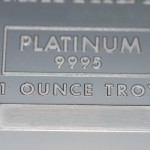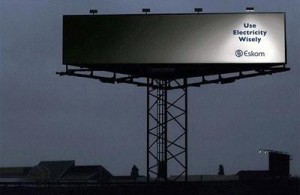 A-list blogger and successful social media consultant Chris Brogan posted a logo design project on 99Designs a few days ago. Then, he tweeted about it.
A-list blogger and successful social media consultant Chris Brogan posted a logo design project on 99Designs a few days ago. Then, he tweeted about it.
If you don’t know, 99Designs is a design contest site. Businesses post a project, with a budget, and entrants submit work. If they win, they get paid. If not, they worked for free.
The small business reaction to 99Designs
Judging from the comments, small businesses love it. It’s cheap! It’s fast! There are lots of options! They think, “Hey I can get something that looks nice and I don’t need a second mortgage on my house!”
99Designs vs Designers
Experienced designers hate it. It’s spec work! It devalues my art! It looks like crap! Would you ask 50 contractors to build a new den on spec? Or trust your operation to an amateur brain surgeon? What about the story of your company? Or how the colors and fonts express your philosophy?
They insist that you can’t just get a logo in one format. You need different versions for larger/smaller or print/web uses.
All true.
However, railing and ranting (while immediately satisfying) won’t change anything.
How to charge more for your work
If you want to get higher prices for your work, you need to better communicate and to better educate your clients:
- why you are worth
- who your market is (and isn’t)
- why buy from you
- what you offer that cheap designers can’t (in business terms)
Specialize – pick a specific market (a niche, more on this coming later). Focus on them. Ignore everyone else.
Brand – use some of those branding skills on yourself. Are you the Ferrari of designers? Or the Smart Car? Why do people choose you? What do you bring to the job that other designers (or that cheap designers) don’t have? How are you remarkable?
Extra value – why knowing the difference between EPS and and RGB matters. And why one logo format doesn’t work for all media (web, trade show banners, brochures, faxes). A logo that looks OK online might look like a mud pie printed out in black and white.
Copyright /Due Diligence – a designer logo is the client’s alone – not ripped off from someone else’s site or work (legal fights are scary and expensive).
Skip the “I’m a professional, I have years of experience.” You are, and you do. That’s not what matters to the client. What matters to the client is whether you give her what she wants – to feel better, look better, earn more, be more successful. What are you really selling?
Here’s the thing. Lamborghini doesn’t really sell cars. They sell status, luxury, sex appeal, and VROOOOM.
Hyundai sells cheap, reliable, and super guarantee.
Are you Lamborghini or Hyundai? Does Hyundai care about Lamborghini’s buyers? No. Nor vice versa. They ignore each other.
Show them why a real designer is worth it. And try to understand when they want to make the logo bigger!
Share your thoughts
What do you think about this debate? Does cheap or spec work hurt designers? Does it matter what the “cheap” people do? What other ways can you approach the problem?


